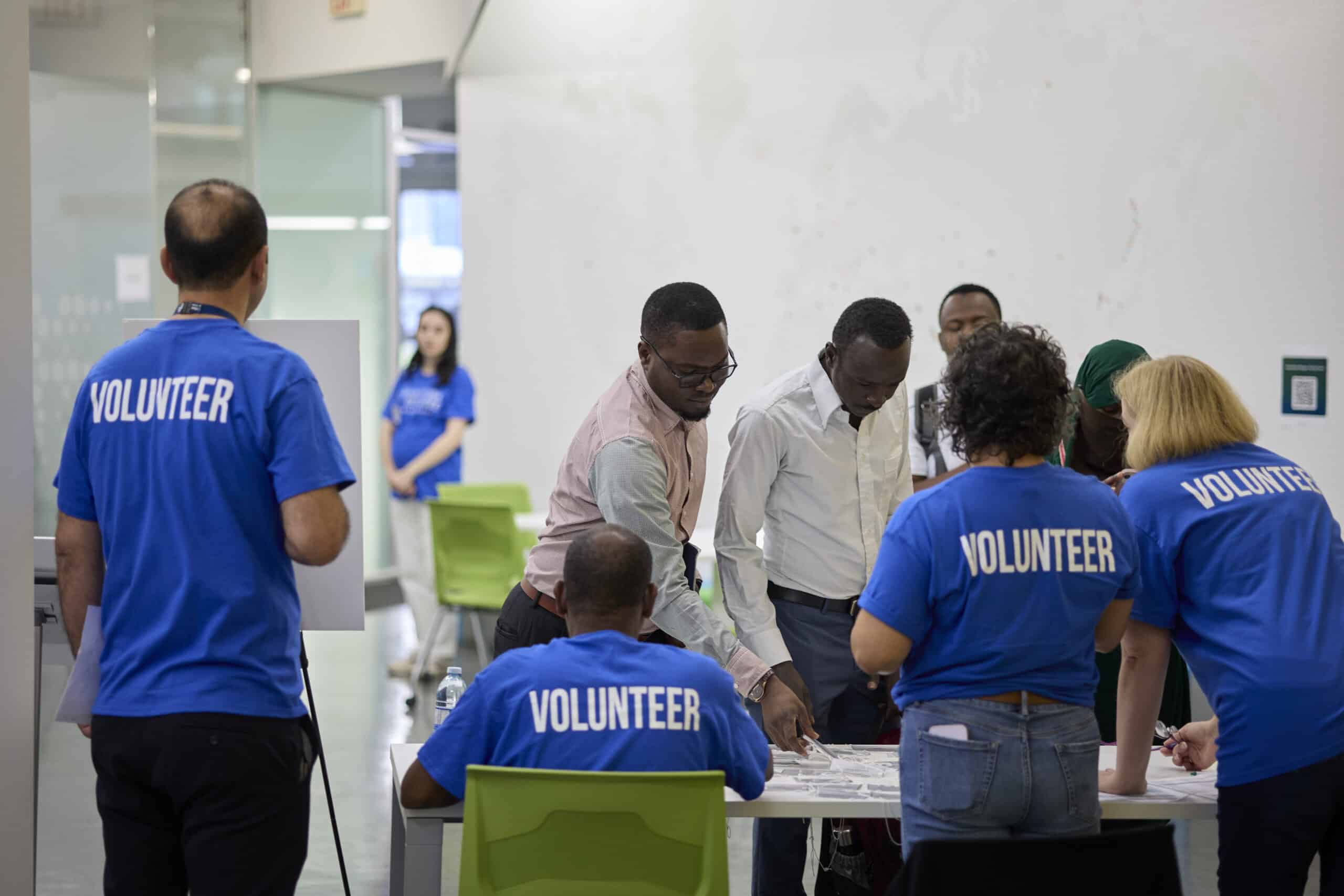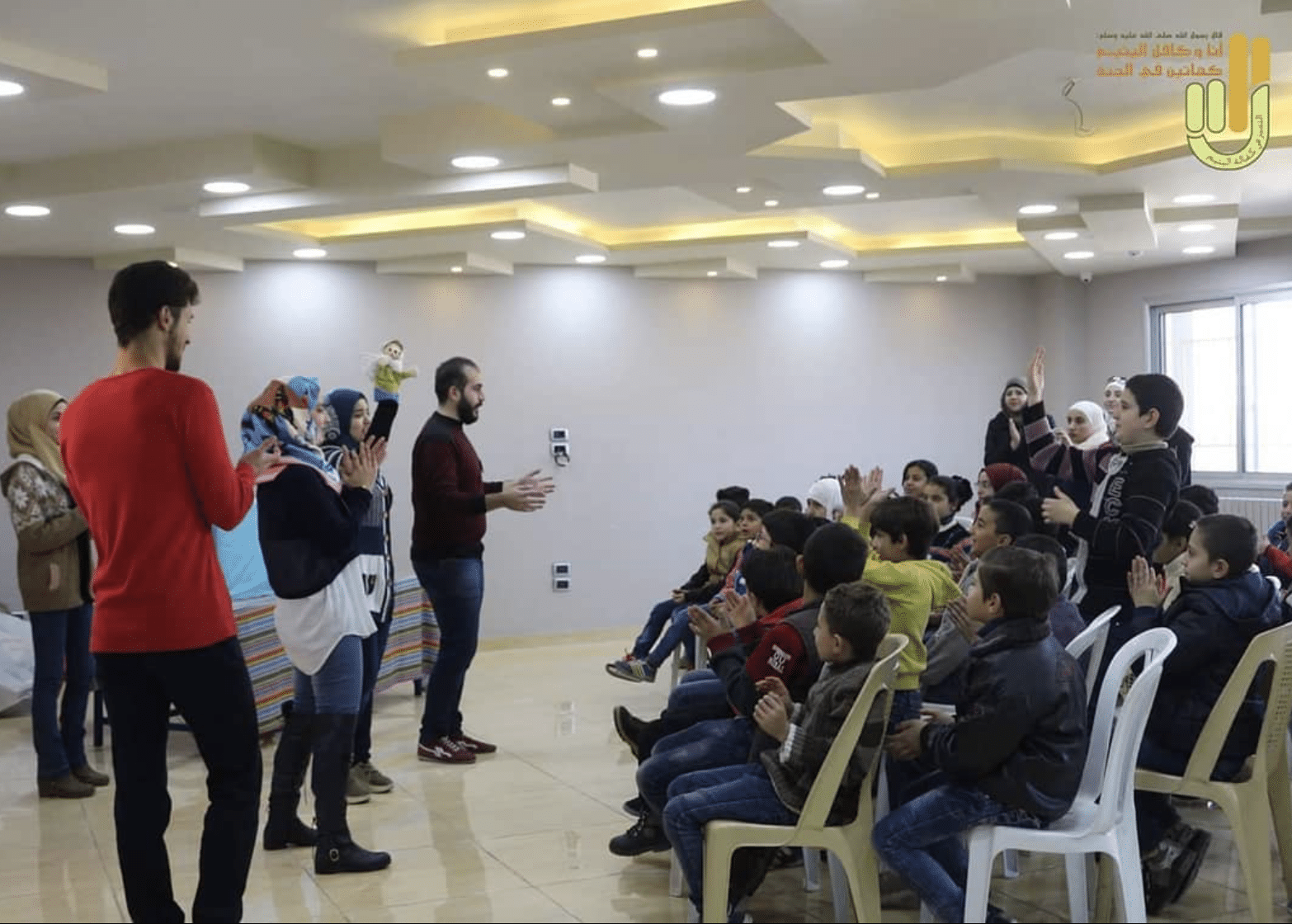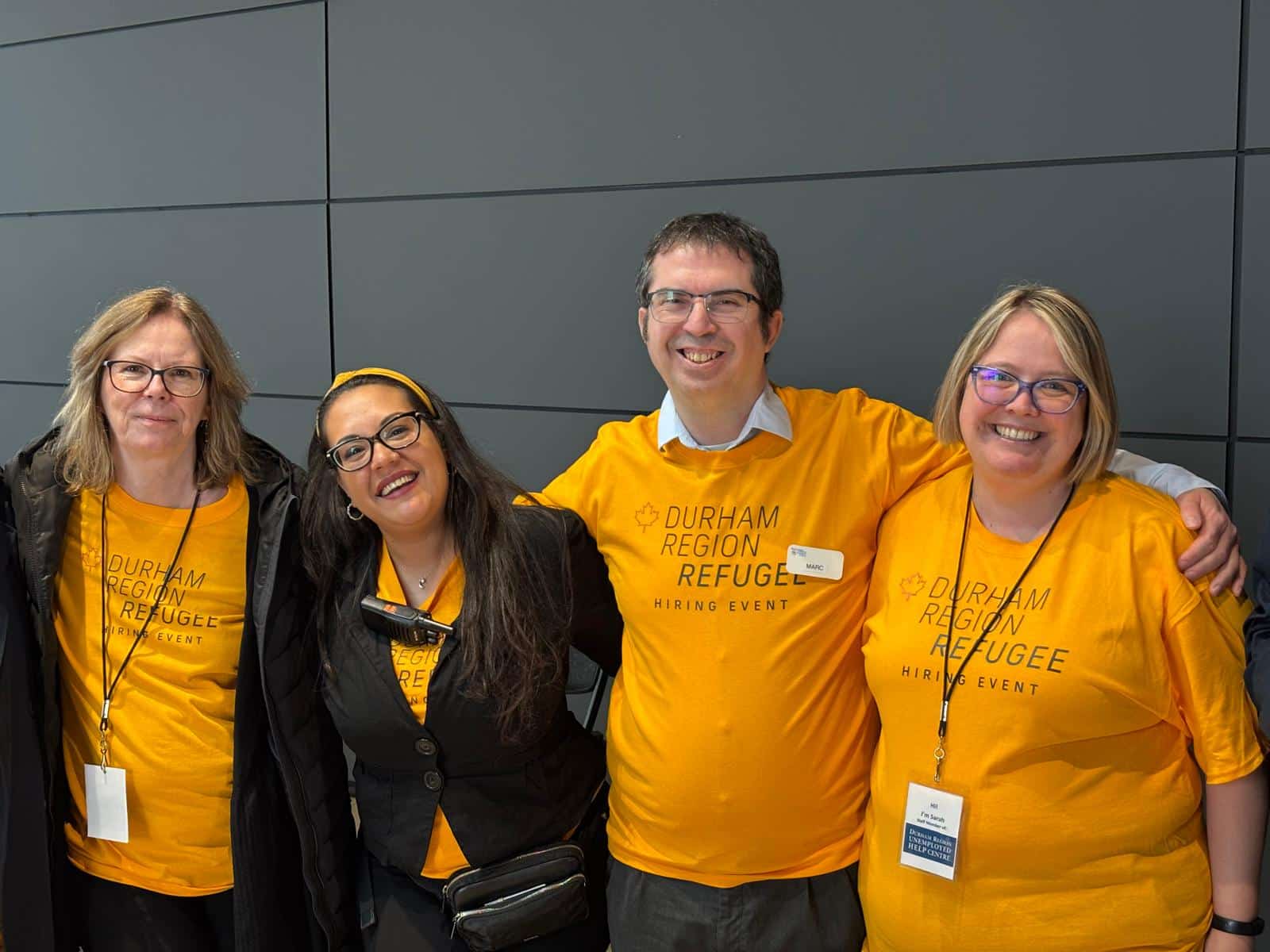This blog was created based on content delivered by the panel discussion event for World Refugee Day 2024.
Enhancing Refugee Economic Inclusion: Best Practices and Success Strategies
In honor of World Refugee Day, Jumpstart Refugee Talent hosted an insightful panel discussion titled “Enhancing Refugee Economic Inclusion: Best Practices and Success Strategies” on June 19, 2024. The panel aimed to provide actionable strategies and best practices for integrating refugees into the workforce. Panelists representing employers, funders, and newcomers shared their insights and experiences regarding enhancing refugee economic inclusion.
Laura Soria, a Senior Director at CIBC, focused on the significance of diversity and representation in hiring practices. She recounted how her initial involvement with Jumpstart began when she was responsible for talent acquisition in personal banking. She talked about her own experience coming to Canada as a refugee and how important it is to support refugees in search of “meaningful employment”. Laura emphasized the importance of meaningful employment over survival jobs, advocating for educational efforts to dispel myths about refugees. She highlighted the significance of inclusive corporate cultures, the need for champions within organizations to support refugee hiring initiatives, and mental health support and self care. Laura shared a success story of a candidate who, starting in an entry-level role, progressed to higher positions and now mentors new talent.
Artem Kovalets, a Human Resource Professional at Angus Management Consulting, discussed his motivation for becoming involved in refugee employment initiatives. He relocated to Canada after the war started in Ukraine and he mentioned that he can “relate to people who are displaced against their will from their home country.” He emphasized the importance of tapping into the talent pool among refugees, driven by the large influx of newcomers to Canada. He highlighted the role of community agencies in identifying and connecting with potential talent that traditional recruitment methods might overlook. Artem stressed the need for organizations to educate themselves on the benefits and legalities of hiring refugees, emphasizing that businesses are often motivated by labor shortages to explore new talent streams.
Caroline Owashaba, as she described herself is “a passionate and dedicated community worker” and has 10 years’ experience in community development. Caroline discussed the challenges refugees face in securing employment and integrating into the system. With over 10 years of experience in community work, Caroline highlighted the importance of mapping out social networks and the power of volunteering with relevant organizations. She noted that navigating credential validation and gaining Canadian work experience are significant hurdles for refugees. Caroline emphasized the necessity of providing targeted support and creating centralized networks where refugees can access employment resources and mentorship.
Fabio Crespin, Senior Manager of Inclusive Employment at United Way Greater Toronto, drew on his extensive experience in socio-economic development. He shared his personal connection to the refugee experience through his father’s journey as a refugee to Brazil and his own experience as an immigrant in Canada. Fabio addressed common misconceptions about refugees, particularly the false notion that they are unprepared or unequipped. He identified key barriers such as lack of networks, unfamiliarity with the labor market, credential validation, and discrimination. Fabio highlighted United Way’s role in funding programs that rebuild social capital, provide mentorship, and offer comprehensive support, including wraparound services. He stressed the importance of creating welcoming environments and working closely with employers to ensure the successful integration and retention of refugee employees.
The panelists collectively underscored the tremendous contributions refugees make to our economy and society, the critical need for inclusive hiring practices, and the role of education and advocacy in supporting refugee economic inclusion. They emphasized the importance of meaningful employment, building community support, and creating environments where refugees can thrive. The discussion highlighted effective strategies for overcoming barriers, the significance of partnerships with community agencies, and the ongoing efforts required to foster diversity and inclusion in the workplace.
For more information on upcoming events, please visit Events & Workshops.




